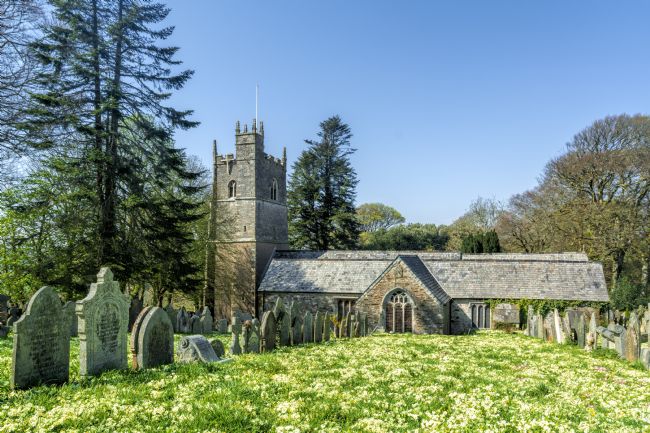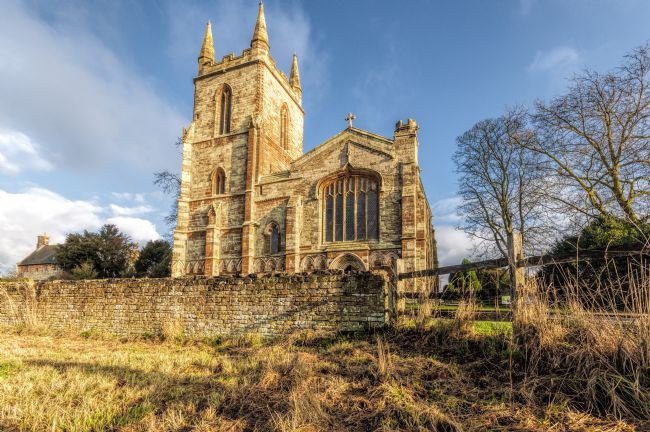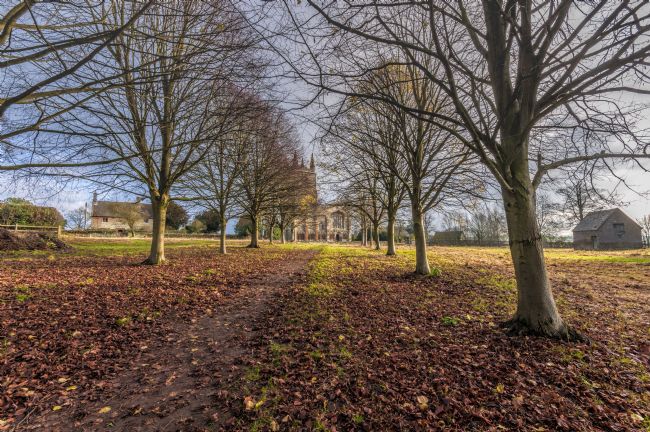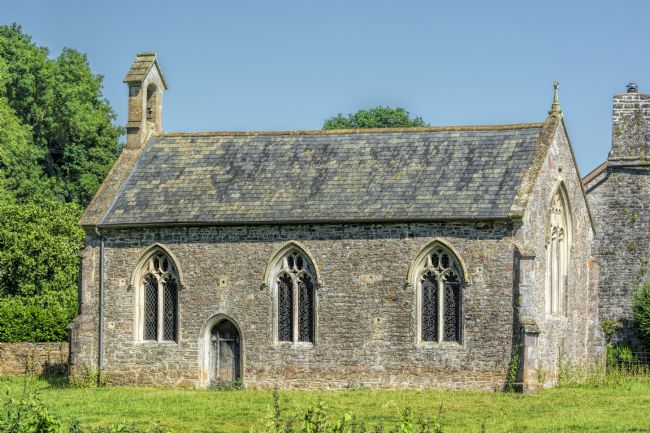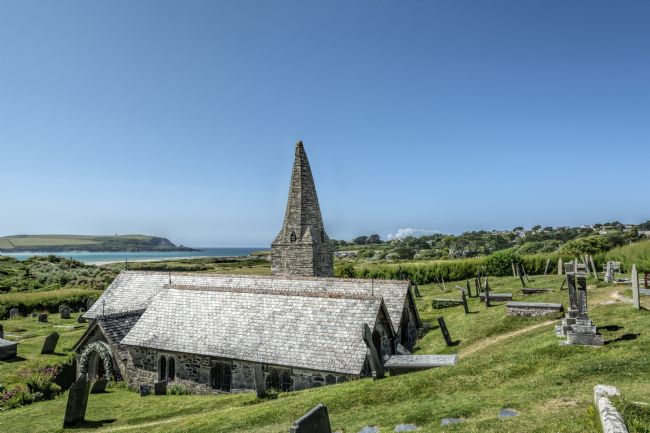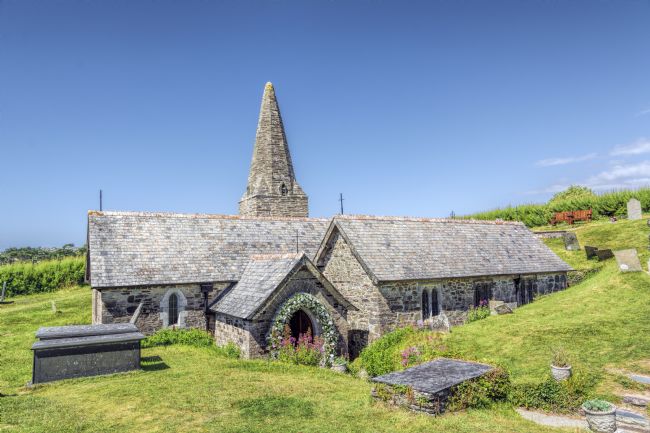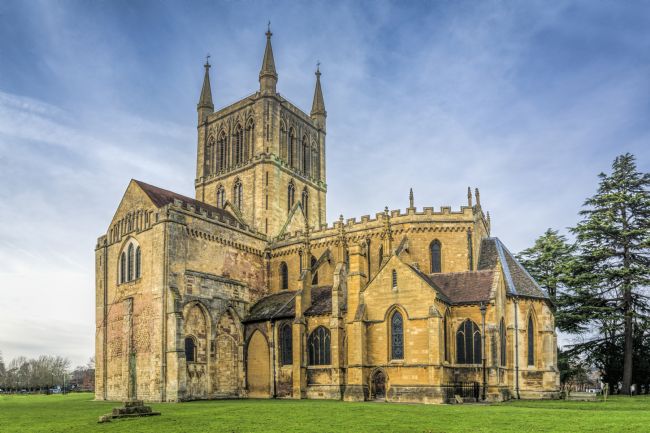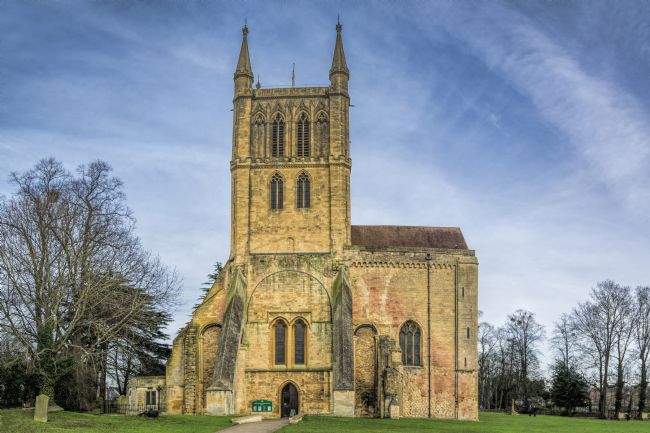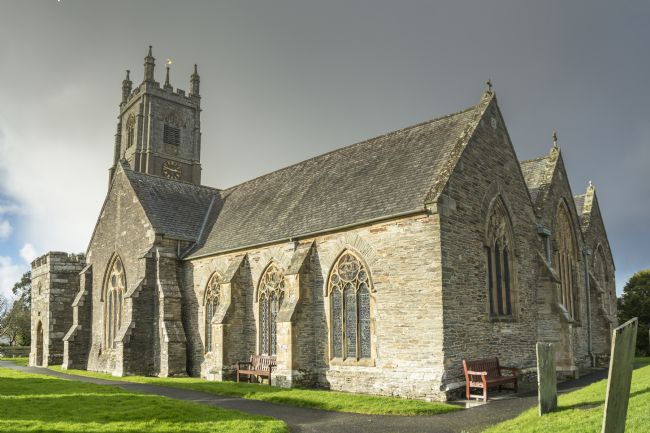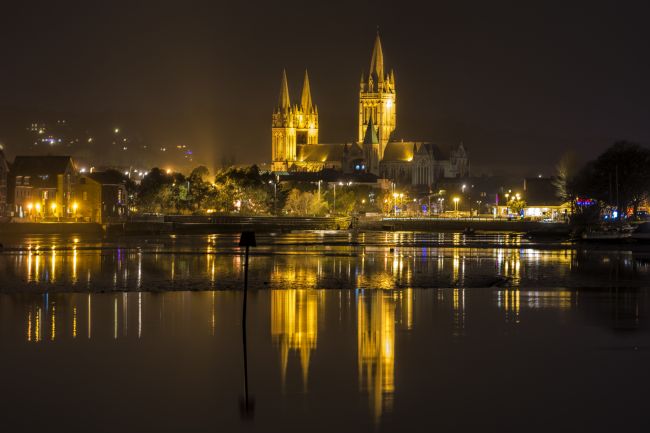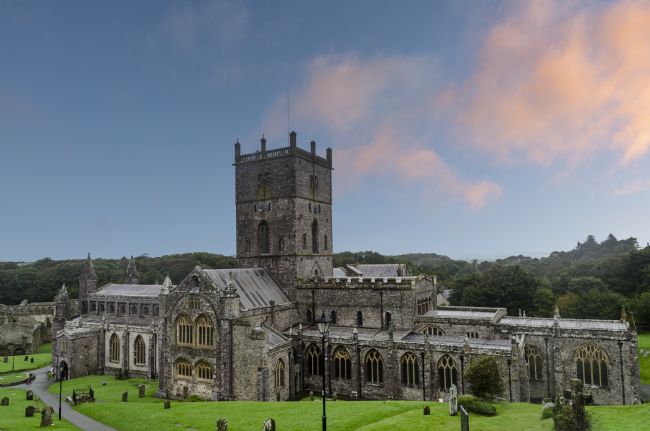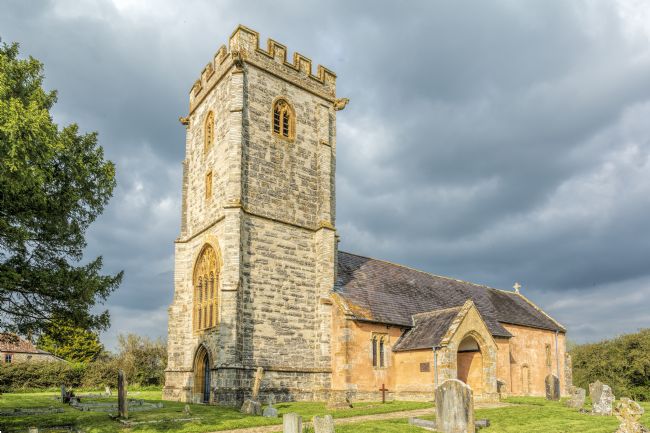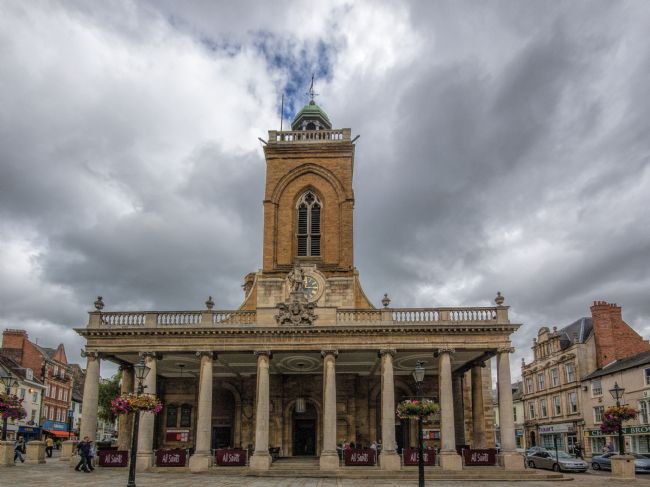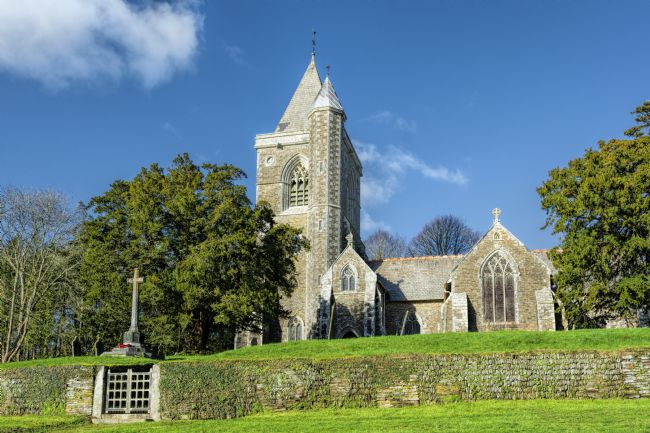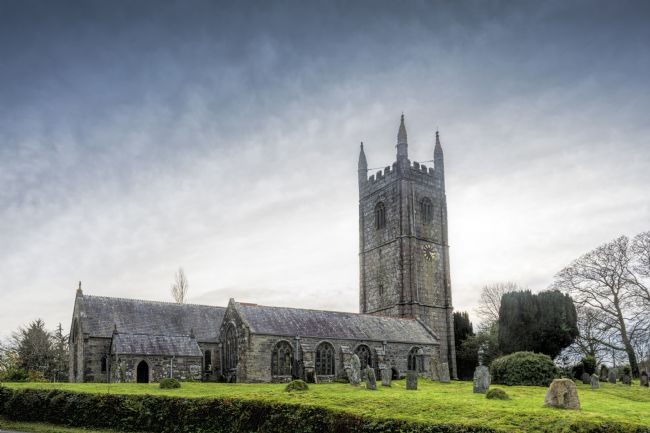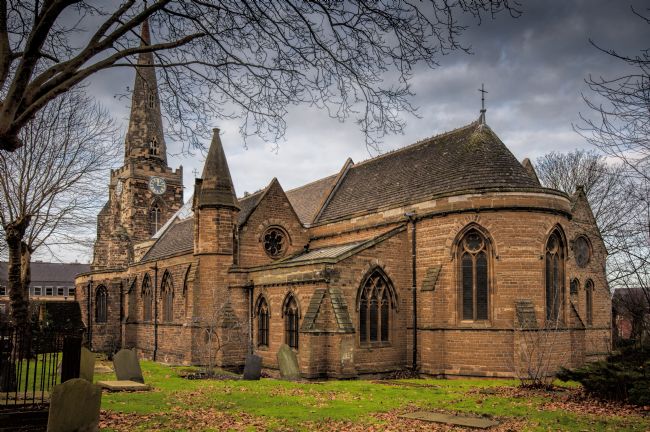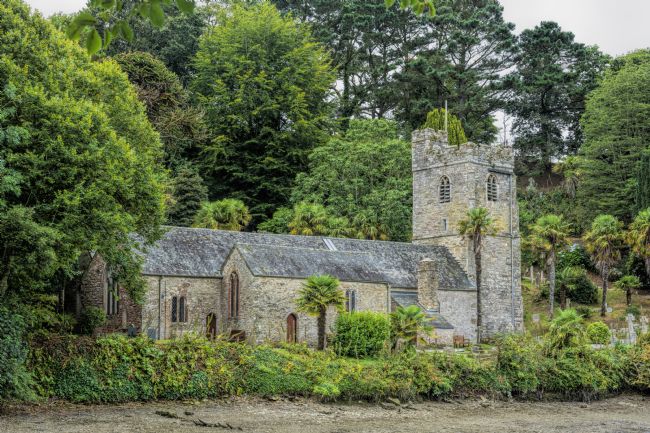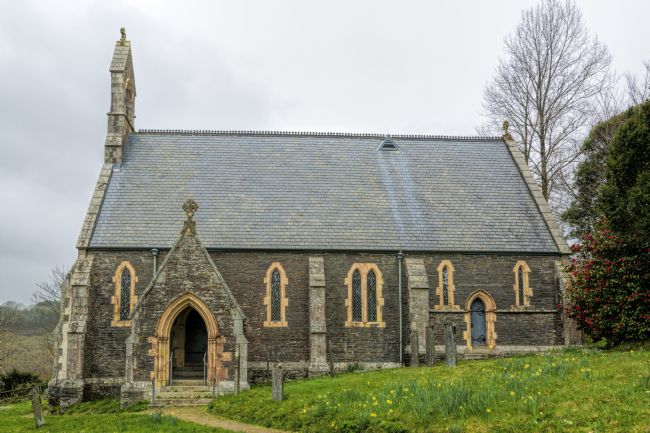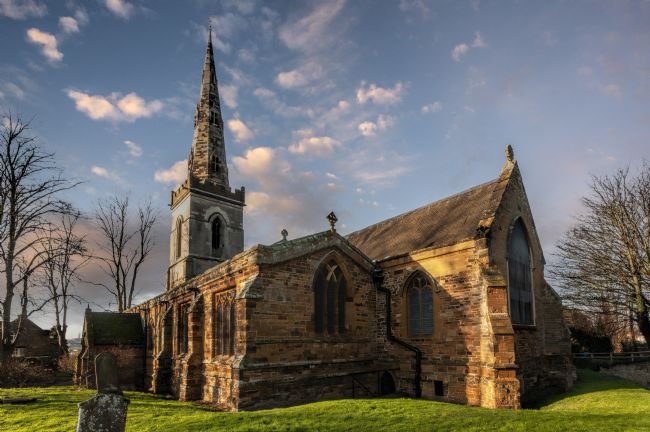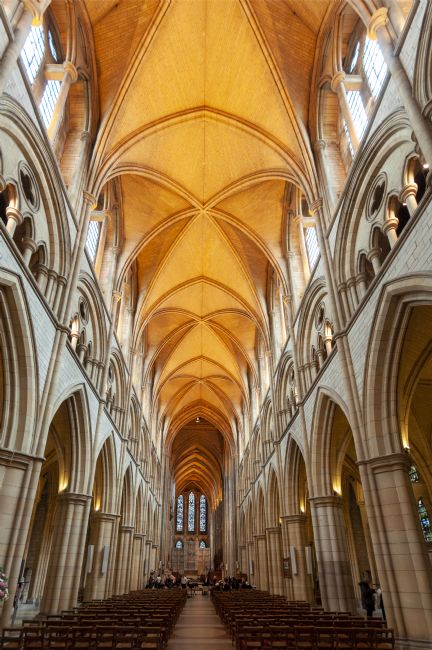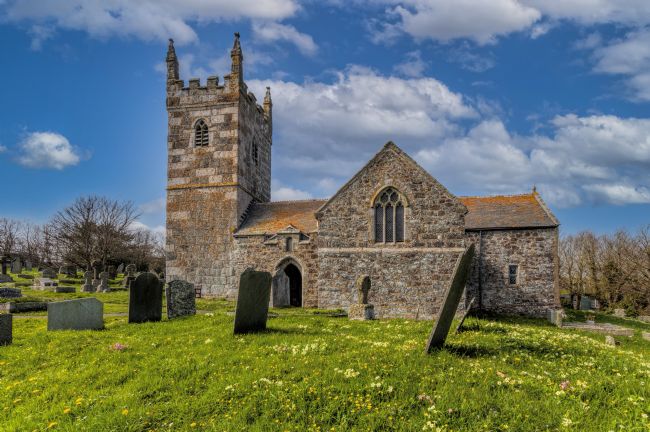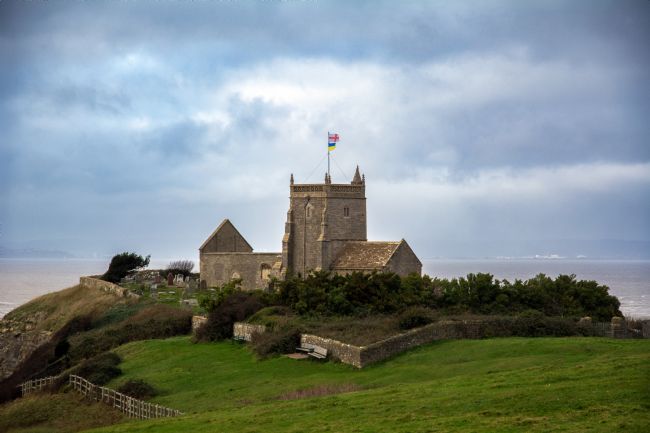St Marins Parish Church dates from the 13th, 14th and 15th centuries. It was restored in 1882 and also in 1907 at a cost of £400 (equivalent to £38,800 in 2016) when the eastern portion of the church floor was lowered, the walls underpinned and the pillars were straightened. A heating system was installed and the lancet window was opened up. It was re-opened for worship by Venerable Archdeacon Henry Du Boulay. The church is surrounded by a carpet of primroses in Spring.
St Mary's Priory Church, Canons Ashby, Northamptonshire, is a rural church which was built during the reign of Henry II and is part of a large estate.
A view of St Mary's Priory Church through an avenue of trees in Autumn. St Mary's Priory Church lies within Canons Ashby, Northamptonshire.
Ayshford Chapel is a former private chapel in the village of Ayshford, in the parish of Burlescombe, Devon, England. The chapel was built in the 15th century by the Ayshford family of adjacent Ayshford Court. It is considered to be large for a private chapel in Devon.
St Enodoc’s is not well positioned in the slightest. Until the arrival of the golf course to the area, the sand dunes moved frequently. Drifting with time and the sea wind that constantly batters the region, it was a constant struggle to stop the entire church from being covered by the ever changing sand dunes.
Eventually, the church succumbed to the tonnes of sand that had spent all those years threatening to cover it. And, as a result, the church was buried under the golden sand and lost for a few generations.
It is the burial place of former poet laureate Sir John Betjeman
St Enodoc’s Church was buried for many years underneath the windblown sand. To maintain the tithes required by the church, it had to host services at least once a year, so the vicar and parishioners descended into the sanctuary through a hole in the roof. By 1864 it was unearthed and the dunes were stabilized.
Pershore Abbey , at Pershore in Worcestershire, was an Anglo-Saxon abbey and is now an Anglican parish church, the Church of the Holy Cross.
Pershore Abbey , at Pershore in Worcestershire, was an Anglo-Saxon abbey and is now an Anglican parish church, the Church of the Holy Cross.
St Columb Major Parish Church, a fine Grade 1 listed building dating originally from the 14th century, stands on a plateau at the head of the fertile Vale of Lanherne.
Truro Cathedral dominates this scene of the city on a calm night at half tide.
Set on a spectacular Pembrokeshire peninsula jutting out into the Atlantic upon the site of an earlier sixth-century monastery built by St David, the patron saint of Wales, St Davids Cathedral has been a site of pilgrimage and worship for more than 800 years.
At first glance, the west tower of Thurlbear's church seems oddly out of touch with the rest of this country church. The tower is 15th century and rises in three stages to a battlemented top. It is built of pale limestone, while the low nave and chancel are built of reddish stone, giving the whole building a peculiar two-toned effect.
A church has stood on the site where All Saints' now stands since the time of the Norman Conquest. Today, at the centre of the town of Northampton and the centre of the county of Northamptonshire, All Saints' stands faithfully proclaiming the gospel, through word, song, and deed, as the place of civic celebration and occasion.
Set at the gates of the Tregothnan estate the tiny and picturesque village of St Michael Penkivel is home to a particularly attractive church. Built with money from the Boscawen family this is a fine church.
The Parish Church of St Meubred in Cardynham dates back to about the 15th Century , and is dedicated to an Irish missionary who came over to preach to the moorland folk but ended up being beheaded in Rome. His body was later returned to the Parish and buried here.
From the outside the church initially presents itself as a confident 19th century re build of a medieval foundation. This is the outcome of Sir Giles Gilbert Scott’s restoration of the 1860’s. As you head towards the porch though your eyes are taken by a strange circular element between tower and nave. Step through that porch and the surprise awaits you. You enter an eight sided building which reflects not only on the church of the Holy Sepulchre in Jerusalem but also the famous re - interpretations of it, Charlemange’s chapel at Aachen, and San Vitale in Ravenna.
St Just in Roseland Church is widely known as probably one of the most beautiful locations of any church. The landscaped graveyard and gardens are exquistite and well worth a visit.
In the 1840s the little village of Herodsfoot became a boom town. There had been some lead mining nearby for centuries but the engine houses and new shafts appeared on either side of the valley producing tons of lead and also some silver, copper and tungsten, all needed by the new factories in the Midlands. Soon there were bunk houses for the miners, four public houses and a school but no church.
So with the encouragement of the rector of Duloe, Revd Robert Scott, it was decided to build a church on the hill above the village in a prominent position to make an impression on the miners.
There a many churches in and around Northampton, here is just one which has an unusual hue to the lower half of the spire.
Truro cathedral was built around the turn of the century and is in the Victorian Gothic revival style. This is the central aisle leading to the main altar,
Truro Cathedral is what defines Truro as a City. It is a relatively new Cathedral and the organ is one of the finest sounds in England.
This image has the moon added using Smart Editor.
Pershore Abbey , at Pershore in Worcestershire, was an Anglo-Saxon abbey and is now an Anglican parish church, the Church of the Holy Cross.
St Wynwallow's Church, Landewednack, is the parish church of Landewednack parish in Cornwall, England, United Kingdom. It is the most southerly church in mainland Britain and is situated approximately ten miles south of Helston. It was founded about 600 AD but the present structure dates to the twelfth century.
St Nicholas church is isolated from the village of Uphill, and stands on a rise just south of Weston-super-Mare, with views over the Somerset marshes and out over the Bristol Channel and the ancient Roman port of Axium. The church dates to the Norman period, and features a 12th-century door, chancel, and nave, with a central tower. The nave is unroofed and open to the elements.
